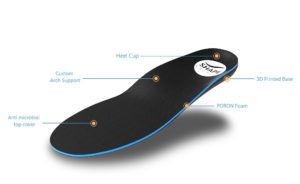Cervical disc replacement recommendations with Dr. Serge Obukhoff? Neurosurgery is the surgical specialization that treats diseases and disorders of the brain and spinal cord. Back pain can sometimes produce neurological symptoms such as numbness, muscle weakness, and loss of bowel and bladder control due to dysfunction at the nerve root. These symptoms are indicators that neurosurgery is required to treat the underlying cause of back pain as opposed to conservative treatments. Procedures to treat back pain under the realm of neurosurgery include discectomy, laminectomy, and spinal fusion surgery. In neurosurgery, there is a higher risk of further nerve damage and infection which may result in paralysis. Discover more details at Dr. Serge Obukhoff.
Some of the traditional spine surgery procedures we provide include laminectomy, microdiscectomy and traditional lumbar fusion. Laminectomy is a procedure that is used to treat spinal stenosis or pressure on the nerves of the low back. The surgery involves an incision on the back of the spine that allows the surgeon to remove bone spurs and thickened ligaments that are pressing on the nerves of the low back. Microdiscectomy is used to treat nerve pain (sciatica) due to a herniated disc impinging a nerve in the spine. This surgery involves making a small incision in the low back. The surgeon can then identify and remove the herniated disc that is pressing on the nerve.
Spinal laminectomy/spinal decompression. This is performed when spinal stenosis causes a narrowing of the spinal canal that results in pain, numbness, or weakness. The surgeon removes the bony walls of the vertebrae and any bone spurs, aiming to open up the spinal column to remove pressure on the nerves. Discectomy. This procedure is used to remove a disk when it has herniated and presses on a nerve root or the spinal cord. Laminectomy and discectomy are frequently performed together.
How do you know when you need spine surgery? When someone comes to us with extremity symptoms, we almost always suggest they first get an evaluation with their primary care physician. If a person is experiencing low back pain or neck pain, we will usually watch them over time and encourage them to maintain good, stable physical activity to see if the issue resolves. If the issue is not resolving with physical activity, over the counter treatments, or pain management and anti-inflammatory medication, the next step would be to see a doctor for an evaluation.
How do I manage pain during my recovery? Back surgery can cause a high degree of post-operative pain. You should consider a number of options for pain relief in the days and weeks after surgery. These options should be discussed with a pain management specialist who can explain the pros and cons of each option or combination of options, including their effectiveness, potential side effects, potential for addiction, and impact on the recovery process.

